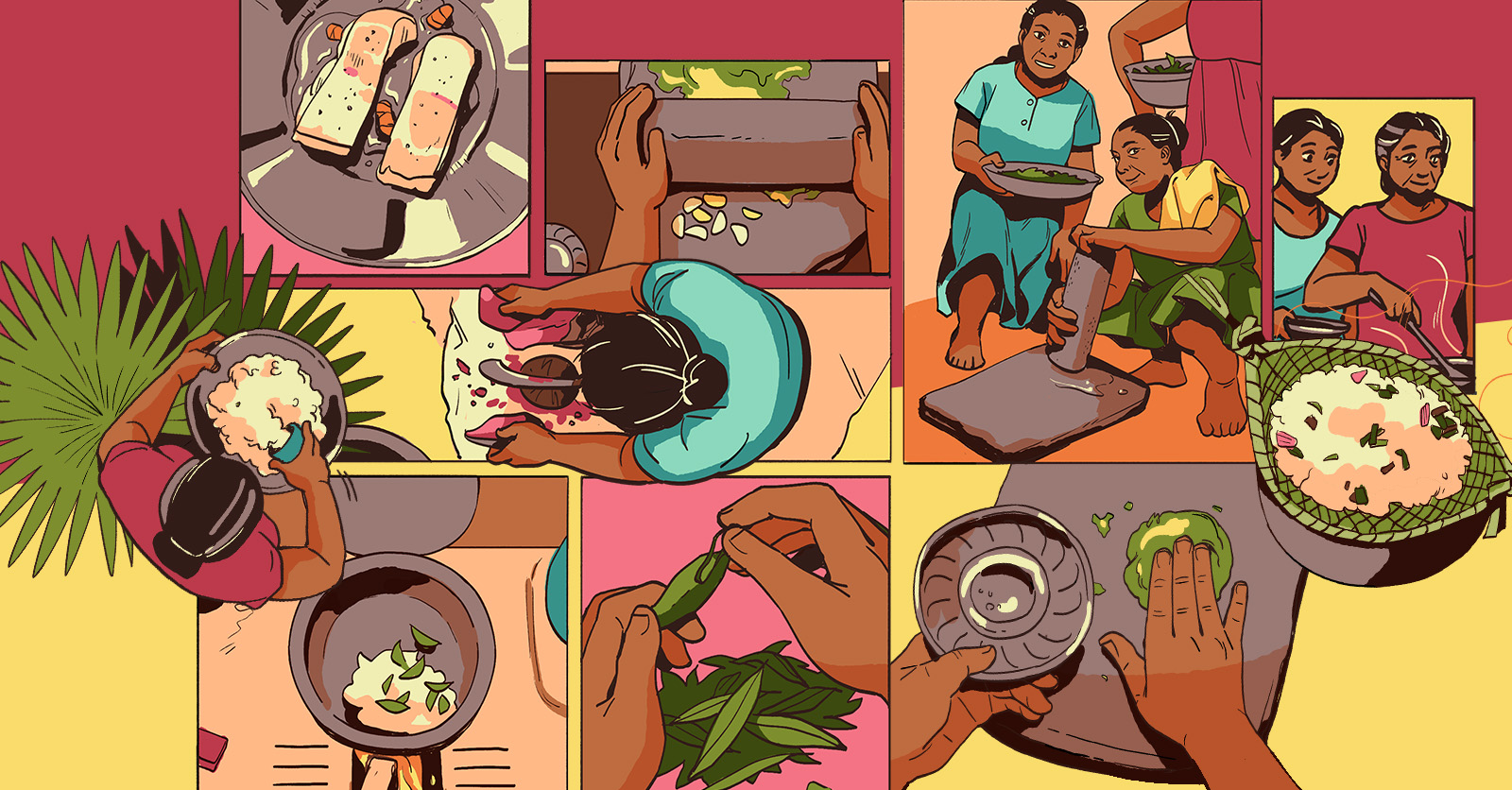A siren song
Disappearing songbirds of Asia
by Vinita Ramani & Naomi Clark-ShenSoutheast Asia is a major hub for the illegal wildlife trade. One group of animals suffering are the songbirds, which are poached for their melodious calls. With over 400 species and millions of songbirds traded annually across Asia, their numbers are plummeting. So what happens to the ones that are sold into the trade? And does our love for them justify the perpetuation of the practice at such a large scale?

Straw-headed bulbul (Credit: Aviancatspace Cheng)
Why do birds matter? Poets and conservationists alike have answered that question at length. They are vital for the health of forests because they prey on organisms living on leaves of trees. They are seed dispersers and pollinators and they are even beneficial for farmers. Of all species though, songbirds are sought after by people because they warble, sing, and create complex song structures.
As a result, songbirds across Asia are under threat. Poachers are penetrating the region’s remaining pristine forests to hunt and capture endangered species, creating a phenomenon known as “empty forest syndrome”—forests devoid of wildlife. A high propensity of the trade takes place in, and through, Indonesia, which has the highest number of globally threatened bird species in the world, after Brazil.
One species is in high demand for its song, making it a target for the illegal trade in songbirds—the straw-headed bulbul. They are hunted even in a protected area like Danum Valley in Sabah, Malaysia. Until the 1950s, the straw-headed bulbul was widespread across Southeast Asia. Deforestation and hunting for the songbird trade has led to such a rapid decline that the bird can only be found in Singapore, Malaysia, remote parts of Kalimantan, Indonesia and possibly Brunei. Today, the species is among the top twelve most threatened bird taxa in Southeast Asia because of trade. It is considered to be critically endangered by the International Union for Conservation of Nature. There are only 600 to 1700 mature individuals left in the wild.

Map showing the distribution of the Straw-headed bulbul until mid-20th century and its current distribution, indicating extinction in Thailand, Java and most likely Myanmar and Sumatra. Data from BirdLife International Species factsheet: Pycnonotus zeylanicus. Downloaded from http://www.birdlife.org. Accessed 5 March 2019.
Straw-headed bulbuls are not shy and tend to roost or nest in easily accessible locations. That makes them vulnerable to trapping. Songbirds can be caught using ‘bird lime’ or a sticky latex substance on the branches of trees where the bird is liable to perch. Poachers also play a birdsong or use a caged bird to lure out unsuspecting wild songbirds. Indonesian NGO FLIGHT has documented evidence which shows that a high proportion of songbirds die at the point of trapping itself. Poachers then collect the ones that do survive, readying them for the next stage of their dramatic journey in the illegal trade.

Birds in crates or plastic boxes readied for smuggling. Photograph credit: FLIGHT
Captured songbirds are then sold to a collector—the middleman facilitating the trade—who places them in cardboard or plastic boxes with holes to take it to the main trader. At this point, any straw-headed bulbuls that were poached might be among an array of species being boxed and stacked for transportation.
Can the species be legally taken across an international border, from Sabah in Malaysia, to North Kalimantan in Indonesia? The international trade in wild animals and plants is regulated by the Convention on International Trade in Endangered Species of Wild Fauna and Flora (CITES). It is an international agreement between governments and ensures that trade does not threaten the survival of flora and fauna, and that they get the protection they need.
Under CITES, species like this one listed under Appendix II are not considered to be threatened with extinction but trade regulation is important to avoid demand that threatens their survival. To trade in straw-headed bulbuls, people need an export permit or a re-export certificate.
The species is also protected across Malaysia through various forms of legislation that have been enacted between 1997 and 2010. As a result, no one can capture, trade, or possess the bird without a license or permit. Additionally, no imports of straw-headed bulbuls have been reported in Indonesia since 1999. This means the capture and international movement of these songbirds is already in violation of national legislation and CITES regulations. They are not being traded. They are being smuggled.
The species is more vulnerable in Indonesia. Added to a national list of protected species as part of a sweeping update in 2018, the straw-headed bulbul and two other threatened songbird species were removed from that list within three months when songbird keepers and traders protested. But there is a nationwide zero-quota for harvest from the wild of straw-headed bulbuls. That means that trading wild-caught songbirds of this species is in violation of Indonesia’s quota policy.
Across Asia, smugglers devise various methods to avoid detection. Birds are stuffed in plastic bottles or PVC pipes. They are put in unlabelled boxes, in bags made of cement paper or stuffed into clothing and pants. In one instance, smugglers at sea chose to drown 300 songbirds to escape capture by the authorities. In July 2018, in Cilegon, West Java, quarantine officials confiscated 6000 birds being smuggled to Sumatra. An inspection revealed that 2000 of those birds were dead.

Many birds do not survive the tedious journey of being trapped, smuggled and sold into the trade. Photo credit: FLIGHT
Why do poachers and collectors flagrantly violate the law? Demand for the bird across the border is high. Market surveys and spot checks conducted between 2014 to 2015 in North and West Kalimantan and in Java, found 71 straw-headed bulbuls across eleven markets. The first comprehensive study conducted in bird markets across all parts of Kalimantan in 2018 also shows that with Java’s wild bird populations rapidly depleting, trappers are hunting in the remaining forests here.
Dealers openly admit that songbirds are smuggled into Indonesia from Malaysia, showing that the species has likely been hunted to the point of extinction in Indonesia, and insatiable demand is driving poachers and traders to hunt for the bird in Malaysia. People prefer wild-caught songbirds because the captive-bred variety are more expensive and harder to find in markets. Songbird owners also believe that captive-bred songbirds do not sing as loudly, or as well, as those from the wild. Malaysian straw-headed bulbuls are sought after for this reason.
Collectors now sell this sought-after species to the traders who house an even larger collection of captured songbirds in warehouses. The traders are the main conduits to major cities and the biggest bird markets. Data on just how many songbirds are poached, smuggled and sold is difficult to find. Official figures only document seizures, but many shipments are not intercepted.

Chatuchak Weekend Market, Bangkok, Thailand. Photo credit: Elizabeth John/TRAFFIC
While the majority of Southeast Asia’s largest physical cage-bird markets are in Indonesia and demand appears to be the greatest on the island of Java, countries like Thailand, Singapore, Malaysia and Vietnam also are also implicated. Globally, wildlife trade is moving online, with buyers and sellers openly advertising on social media.
The size of circle markers on the map reflect the size of physical cage-bird markets, relative to one another, in terms of volume of birds. Volumes range from a few hundred up to tens of thousands of birds, seen over just a few days. Data from TRAFFIC and Yayasan Planet Indonesia.

Cages line the streets at Pramuka market, one of the largest markets in Jakarta. Credit: Kanitha Krishnasamy, TRAFFIC
The straw-headed bulbuls that were poached in Danum Valley, Malaysia, arrive here in Java, Indonesia, which has bird markets in virtually every major town and city. Jakarta holds some of the most infamous markets, where animals are described as ill-treated and crying for help.
The scale is enormous: over 19,000 caged birds were counted in three of Jakarta’s markets in just three days. A staggering 98 percent of these were reportedly harvested outside of the national quota system, making them illegal. Regardless, traders throughout Indonesia openly sell their birds with little fear of the authorities.
While some songbirds sell for as little as USD$0.23, the straw-headed bulbul occupies a different category. Costing approximately US$20 in 1987, prices dramatically escalated in the mid-2000s, with current estimates at about US$902 per bird. The cost continues to rise the more rare they become in the wild. For buyers, the price is worth it: the right bird can win them substantial money in songbird competitions.
Jakarta’s bird cages overflow with hundreds of different species. The white-rumped shama, oriental white-eye, hwamei and oriental magpie robin are some of the songbirds commonly sold alongside the straw-headed bulbul. The industry contributes significantly to the nation's economy. A 2011 study showed that bird-keeping generated US$78.8 million for the economies of six cities across Indonesia and supports livelihoods in rural and urban areas.
Slide to see photographs of the birds in the wild, and in captivity.


Oriental white-eye. All captive bird photos Jame A. Eaton / TRAFFIC.


Oriental magpie robin. All captive bird photos Jame A. Eaton / TRAFFIC.


White-rumped shama. All captive bird photos Jame A. Eaton / TRAFFIC.


Chinese hwamei. All captive bird photos Jame A. Eaton / TRAFFIC.

Bird cages hanging in a field, location unknown.
Our fascination with birds is ancient and pervasive. From as early as the 4th century, the Sumerians, Persians, and Greeks refer to birds being kept in cages. Babylonians, Polynesians, and Vikings took birds along in gilded cages as companions on long sea voyages. It is still a widely practiced hobby in Asia. Buddhists also engage in “merit release”— a practice in which wild-caught birds are set free from cages to gain spiritual merit.
In Indonesia, bird-keeping has its roots deep in Java. A long-held belief is that a Javanese man must keep five things to be materially and spiritually complete, the last of which is a kukilo—a bird. A hobby enables one to have a balanced life and bird-keeping is believed to promote peace of mind. A colonial policy of transmigration implemented by the Dutch in the 19th century changed that. People from Java were sent to Sumatra, Sulawesi, and Papua. The policy continued with the Indonesian government. By 1990, over three million people had been resettled. That contributed to the spread of songbird keeping. Melayu, Madurese, Dayak and Chinese communities in Kalimantan have adopted the idea that a songbird is a status symbol.

“The Making of a Javanese Man”: A Javanese man needs a wife, a dagger, a house, transportation and a bird/hobby
Today, birds are the most popular household pets in Indonesia and close to 22 percent of households across the nation own birds. The practice is not just about culture, but also about power and privilege. Research has shown that high-income households tend to own wild birds, or ones that are endangered. Birds can be priced as little as a few dollars to several thousand dollars. Owning an expensive cucak-rawa (straw-headed bulbul) is a status symbol and represents adherence to tradition.
Songbird keeping is not just for the domestic sphere. It is a hobby practiced in the public domain through songbird competitions. The most expensive songbirds might find themselves right here at the Jokowi President Goblet Singing Bird Competition, which takes place in Bogor Botanical Gardens in West Java. A songbird purchased for a modest sum of US$10 can appreciate to US$6000 over time if it has a great singing ability and a stellar track record in competitions. In a nation where the average monthly income is US$750, songbird competitions that offer US$20,000 as prize money for a winning bird incentivises bird owners (predominantly men) to invest in the bird and hold out for a win. Even President Joko Widodo participates in competitions and sought to purchase a white-rumped shama for US$41,347 from a songbird owner because it beat his bird.

Credit: Serene Chng / TRAFFIC
A bustling metropolis which has lost over 90 percent of its primary forest, Singapore is an unexpected global stronghold for wild straw-headed bulbuls, with around 200 in the country —or 11 to 33 percent of the estimated global population. Though protected by law in Singapore, they are still threatened by poaching for the illegal trade.
Singapore’s songbird culture is relatively new: contests began in 1964 after bird fighting was outlawed. People would place bets on the loudness, variety of songs, stamina and posture of the songbirds. Competitions are still held today in Ang Mo Kio Town Garden, in northern Singapore, among other places.

Birds being sold in Singapore. Credit: James A. Eaton / TRAFFIC
But Singapore’s role in the songbird trade is more immense than just local competitions—they are also a key transit country for the illegal wildlife trade. Between 2005 and 2014, the country imported and exported hundreds of thousands of birds. Additionally, there has been concern over Singapore’s role in moving illegally sourced birds into the legal global market.
As straw-headed bulbuls continue to disappear across Asia, Singapore may become the world’s last wild source of the species. Its fate may hang on the measures taken in this small island city: enforce the law and commit to conservation, or the straw-headed bulbul’s song may soon only be heard from behind gilded bars.
--
This story was written in partnership with TRAFFIC and MONITOR.


Vinita was an editor and writer at Kontinentalist. She has previously worked at Wildlife Reserves Singapore and co-founded an NGO to represent survivors of genocide in Cambodia before the Khmer Rouge Tribunal. She enjoys her daughter's animated babbling; swimming in oceans; Hindu mythology; ancient temple ruins; social justice and punk rock.

Naomi was a data journalist at Kontinentalist. She is a marine scientist who has commitment issues so works on a variety of projects. In her free time, she likes to be in the ocean, in the mountains, or in the wrestling ring.
TRAFFIC is a leading NGO that works on wild animal and plant trade around the globe, focusing on biodiversity conservation and sustainable development. It conducts research, analysis, and policy work together with a wide range of partners, from governments and businesses to individuals.
Monitor is a conservation research society that focuses on issues related to and the less-known species that are impacted by the global wildlife trade. It aims to raise awareness and inspire citizen conservation through scientific publications and outreach campaigns.












